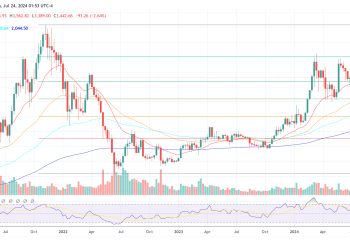Coinbase Voices is a collection of employee stories that highlight the expertise of our Coinbase team and share their journeys to crypto. In this post, senior counsel Georgie Harris discusses her journey to Coinbase (and how she learned that fiat isn’t just an Italian car company).
Tell us about the journey to become a lawyer in England? What does your job actually mean?
People become lawyers through a whole host of paths, and it depends on the country where they are going to work (different countries have different routes, although it’s quite a long road pretty much everywhere!).
In England, where I‘m qualified to practise law as a Solicitor, it normally involves doing a law degree at university, or doing another non-law degree and doing a “conversion” course after university. I then did a year at law school before starting a “training contract” at a law firm. This involved doing 6 months in 4 different departments to get experience in a few different areas, at the end of which I became qualified! I continued working at the law firm for a few years after qualification before joining Coinbase.
Within Coinbase, I am a Senior Counsel in the International Legal Team. The team is responsible for ensuring Coinbase’s operations outside of the US are fully compliant with applicable law and all regulatory requirements (there’s also a US legal team that covers our US operations). I love it because I get to deal with so many diverse issues across a load of countries — on any given day I might be looking at our banking partner relationships in the UK, working on a new entity incorporation in APAC and figuring out what a new regulatory development in Canada means for Coinbase.
What’s the one thing you wish you’d known before joining Coinbase?
I wish I’d known how new so many people here are to the crypto industry. Sure, we have lots of incredible crypto natives who know as much as anyone else in the world about this space, but there are also plenty of us who probably started the interview process thinking “fiat” was a car manufacturer.
I wish I hadn’t worried so much that I’d be the bottom of the class — everyone is really happy to share knowledge and everyone is at a different stage of their crypto journey.
How would you describe your first three months? What was the hardest lesson learned?
My first three months were a bit of a whirlwind, not only because I joined only a month before we started working from home because of COVID-19. One of the hardest lessons was that I should have appreciated the office snacks a bit more whilst I was still there!
COVID aside, the first three months was a very steep learning curve as I had not really worked “in-house” before (i.e. in a company, rather than in a law firm advising companies) and because I had no background in crypto. The thing that saved me was how incredibly supportive my team and the wider London office was. Everyone here is so generous with their time and are happy for you to just throw a meeting in their diary so you can make sure you understand properly what it is you’re working on — even if you’re not working on it directly with them. I love that “happy to help any way I can” attitude.
What made you want to work at Coinbase?
I really liked working in a law firm and advising lots of clients from diverse industries, but after a while I felt like I was helping other people (my clients) build things rather than building anything myself. I was a Corporate lawyer, working on mergers / acquisitions and investments mostly, and often we were brought in right at the end of a long process where 90% of the journey was done. I wanted to work in a company where I could help get involved right from the start.
An ex-colleague introduced me to Coinbase and the more I learned about the company, the more I loved. As I say, I wanted to help build something, and helping to build a new financial system for the world is about as exciting as it gets!
The really early stage of crypto regulation also really got me interested as a lawyer — Coinbase (as a well known and trusted brand in the space) can often be the first or one of the first firms to engage with regulators who are looking at crypto. As a result, we’re in a pretty unique position to help shape the future of regulation in the crypto space, which I find incredible. Lawyers aren’t known for getting excited, but that definitely got me going!
What inspires you to log on every day?
The team that I work with is what gets me fired up in the morning. The International Legal team is still fairly small and everyone is incredibly collaborative in how we approach new problems and get work done. We have a team check-in every day — morning for the UK, late afternoon for our team members in Singapore — where we can puzzle through the top of mind issues. We’ve managed to maintain that “let me just bounce this idea off you” feel that you get in an office, even though we’re all remote.
What’s the best thing about remote-first?
I love the flexibility — it’s all about making sure that employees have the choice to do what fits them best. That might be being in the office all the time, always at home, it might be a hybrid. You can work where and when suits you best, and you won’t feel like you’re missing out on something if you don’t go into the office 5 days a week.
For me, that flexibility means I can go to the gym in the middle of the day, before calls with the US start in the afternoon. Or I can work from a friend’s house if I’m visiting for a weekend so I can extend my stay. To be honest, I also like having an extra 30 minutes in bed in the morning!
What can you tell us about yourself that we wouldn’t know from your LinkedIn?
I used to play the flute (I do still have it, but I’m pretty rusty and it seems antisocial to play when I live in a flat and have lots of neighbours!). I was in an orchestra and also a trio group; the trio was called Flute Salad (I’m afraid I can’t take credit for thinking up the name).
Coinbase Voices: How to become an international crypto lawyer was originally published in The Coinbase Blog on Medium, where people are continuing the conversation by highlighting and responding to this story.



















